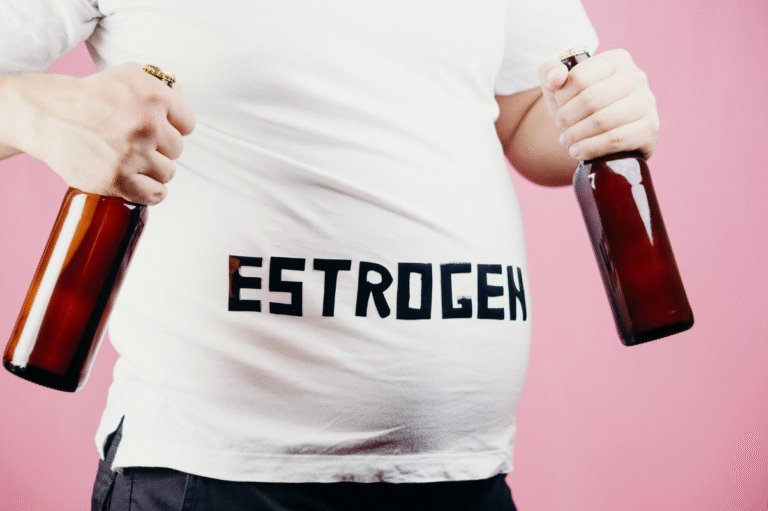Is Your PMS Getting Worse Every Month? Hormonal Imbalance Could Be to Blame
If your PMS symptoms intensify with each passing month, experiencing more severe cramps, heightened mood swings, or debilitating fatigue, you’re not alone. Many women report that premenstrual syndrome appears to worsen over time, impacting their relationships, productivity, and overall well-being.
Emerging research and expert insights indicate that hormonal imbalance, particularly fluctuating levels of estrogen and progesterone, might be the cause. However, the positive news is that there are natural ways to identify and address these changes, helping you restore a balanced menstrual cycle.
What Experts Say About Worsening PMS and Hormones
Dr. Jolene Brighten, ND, a board-certified naturopathic endocrinologist and hormone expert, explains that progressive worsening of PMS may indicate an underlying hormone imbalance, such as estrogen dominance or low progesterone. These imbalances can disrupt your mood, energy levels, and overall physical comfort during the second half of your menstrual cycle.
She further explains that modern lifestyle factors, such as chronic stress, poor sleep, environmental toxins, and inadequate nutrition, can all contribute to hormone disruption. Consequently, these factors can exacerbate the symptoms of premenstrual syndrome over time.
What Research Reveals About PMS and Hormonal Fluctuations
A 2023 study published in the Journal of Women’s Health revealed that women with elevated estrogen-to-progesterone ratios experienced more severe PMS symptoms, such as irritability, insomnia, and bloating.
Another study conducted by the National Institutes of Health (NIH) revealed a correlation between low progesterone levels during the luteal phase of the menstrual cycle and heightened anxiety, breast tenderness, and food cravings.
These studies highlight the pivotal role hormones play in the severity of PMS, underscoring how imbalances can accumulate or worsen month to month if left untreated.
Why This Matters for Public Health
According to the Office on Women’s Health, over 90% of women experience PMS at some point in their lives. For approximately 20-40%, the symptoms are severe enough to significantly impact their daily activities. However, many women continue to normalize worsening symptoms or dismiss them as a natural part of aging.
Unchecked hormone imbalances can also lead to long-term health problems such as polycystic ovary syndrome (PCOS), thyroid dysfunction, fertility issues, and even complications during perimenopause.
By raising awareness about the hormonal basis of PMS, healthcare providers can empower women to seek interventions earlier, thereby enhancing their overall mental and physical well-being.
Signs Your PMS Might Be Due to a Hormone Imbalance
You may be dealing with a hormonal issue if you experience:
- PMS symptoms starting earlier and lasting longer
- Extreme mood swings, anxiety, or irritability
- Increased bloating, breast tenderness, or migraines
- Disrupted sleep or insomnia before your period
- Irregular or heavy periods
- Cravings for sugar, carbs, or salty foods
Natural Ways to Balance Hormones and Reduce PMS
You don’t have to suffer every month. These evidence-based strategies can help balance your hormones and ease PMS symptoms:
1. Balance Your Blood Sugar
Stable blood sugar helps regulate estrogen and progesterone. Eat regular meals with protein, fiber, and healthy fats to reduce cravings and mood swings.
2. Reduce Stress and Cortisol
Chronic stress can deplete progesterone. Incorporate calming practices like yoga, deep breathing, or even 10-minute nature walks to lower cortisol.
3. Support Liver Detox
The liver metabolizes excess estrogen. Include cruciferous vegetables like broccoli, kale, and cauliflower in your diet to aid natural estrogen detox.
4. Try Magnesium and Vitamin B6
These nutrients have been shown to reduce PMS-related depression, cramps, and fatigue. Always check with your doctor before supplementing.
5. Avoid Endocrine Disruptors
Limit your exposure to chemicals in plastics, fragrances, and household cleaners. These compounds mimic estrogen and may worsen imbalances.
6. Consider Adaptogenic Herbs
Herbs like chasteberry (vitex) and ashwagandha have been shown to help regulate hormones and alleviate PMS symptoms. Healthline’s guide to PMS supplements offers a science-backed list.
Don’t Ignore What Your Cycle Is Telling You
If your PMS symptoms are worsening each month, it could be your body’s way of requesting support. Hormonal imbalances are prevalent, but they are also manageable with the appropriate lifestyle changes, nutrition, and medical intervention.
Speak with a trusted healthcare provider about testing and treatment options. With awareness and action, you can regain control of your hormonal health and feel like yourself throughout the month.
Check out the healthlynic ✔️approved range of products for Weight Loss, Improve metabolism and much more!







